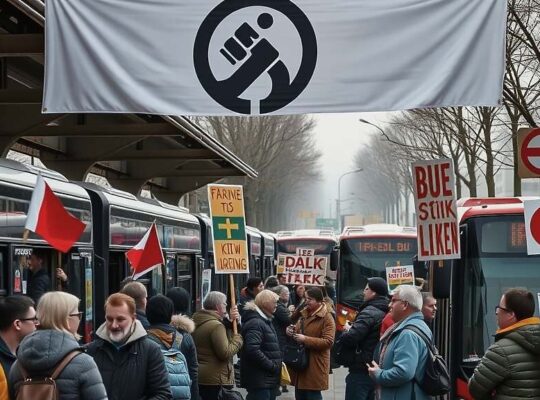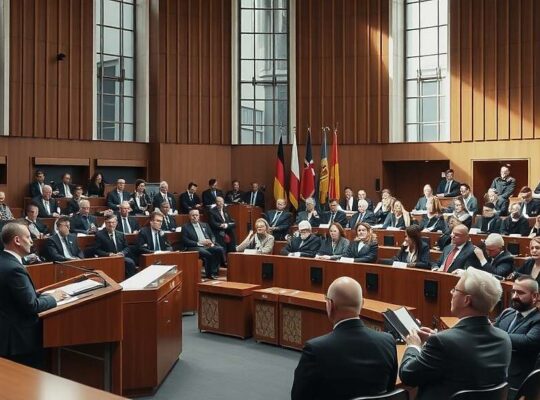Following an exhaustive six-hour closed-door session late Thursday, Germany’s governing coalition of the CDU/CSU and SPD is poised to announce the outcome of intense negotiations, particularly concerning the contentious pension reform debate. While sources suggest a fundamental agreement has already been reached within the coalition, underlying tensions and political maneuvering remain visible.
The crux of the disagreement revolves around the commitment to maintain a pension level of 48 percent beyond 2031. This target, while seemingly settled, has drawn criticism from within the CDU’s youth wing, the Junge Union, who have expressed concerns about the long-term financial burden it places on future generations. Their reluctance to endorse the existing legislative proposal highlights a growing generational divide within the ruling party and underscores the difficulty of balancing immediate political gains with sustainable economic policy.
The planned timetable for implementation, targeting a parliamentary vote in December and a January 2026 entry into force, remains a critical point of contention. Notably, both the CSU and SPD are steadfast in their insistence on adhering to this timeline, potentially setting the stage for a delicate balancing act given the internal CDU pressure.
Beyond pensions, discussions also encompassed the controversial phasing out of internal combustion engine vehicles and the ongoing debate surrounding heating regulations. These issues, already politically charged, are likely to be scrutinized under the framework of the coalition agreement.
A joint press conference hosted by the leaders of the CDU, CSU and SPD is scheduled for 9:30 am today at the Chancellery, where the details of the negotiated settlement are expected to be unveiled. The coming days will reveal whether the coalition can successfully navigate these complex challenges and present a unified front, or whether internal disagreements will continue to plague the government’s agenda. The stability of the coalition itself may hinge on the perceived fairness and long-term impact of the announced policy compromises.












